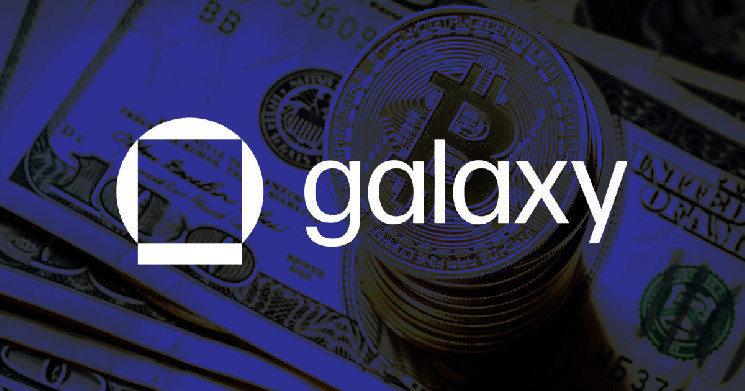Bitcoin’s recent surge to new all-time highs has ignited discussions about its potential to rival, and even surpass, gold as a premier store of value. Mike Novogratz, CEO of Galaxy Digital, a prominent cryptocurrency investment firm, predicts that Bitcoin’s market capitalization could equal and eventually eclipse that of gold within the next five to eight years. This audacious prediction stems from Bitcoin’s remarkable momentum, which has seen its market cap reach a record 14% of gold’s estimated $17.8 trillion valuation. This growth underscores a paradigm shift in the investment landscape, where digital assets are increasingly challenging the dominance of traditional safe-haven assets.
Bitcoin’s ascent towards gold’s market capitalization is not merely a speculative projection; it’s backed by demonstrable market trends. Alex Thorn, head of research at Galaxy Digital, highlighted Bitcoin’s accelerating growth trajectory, showcasing how its share of gold’s market cap has steadily increased. Furthermore, Bitcoin’s surge to a new all-time high of over $100,000 reinforces the growing investor confidence in its potential. Significantly, Bitcoin’s market capitalization now exceeds two-thirds of the total gold reserves held by central banks worldwide, a metric that underscores its growing significance in the global financial ecosystem. This rapid ascent is a testament to the evolving perception of Bitcoin, transitioning from a niche technological curiosity to a serious contender in the arena of store-of-value assets.
The acknowledgment of Bitcoin by influential figures in traditional finance further solidifies its legitimacy. Federal Reserve Chair Jerome Powell’s recent remarks, characterizing Bitcoin as a “digital version” of gold, albeit a speculative one, signal a growing recognition of its presence and potential impact on the financial landscape. While Powell maintains that Bitcoin currently lacks the functionalities of a sovereign currency, his acknowledgement signifies its emergence as a distinct asset class. This recognition by a key figure in monetary policy lends credibility to the arguments for Bitcoin’s potential as a store of value, even if its role in everyday transactions remains limited. This nuanced perspective, differentiating between Bitcoin’s potential as a store of value and its current limitations as a medium of exchange, is crucial for understanding its evolving role in the global financial system.
Adding further fuel to Bitcoin’s momentum is the recent outperformance of US-based Bitcoin ETFs over their gold counterparts. The total assets under management in Bitcoin ETFs have now surpassed those of gold ETFs, marking a significant milestone in the competition between digital and traditional assets. This shift in investment flows suggests a growing preference among institutional investors for Bitcoin as a store of value, potentially driven by factors such as its perceived scarcity, its decentralized nature, and its potential for future growth. The success of BlackRock’s iShares Bitcoin ETF (IBIT), outpacing the long-established iShares Gold ETF (IAU), serves as a potent example of this trend. This shift in institutional investment further reinforces the narrative of Bitcoin as a viable alternative, and potentially a superior one, to traditional gold investments.
Novogratz’s prediction of Bitcoin surpassing gold’s market cap is not an isolated view but reflects a growing sentiment within the cryptocurrency industry. Several factors contribute to this optimistic outlook. Firstly, increasing institutional adoption is playing a crucial role in driving Bitcoin’s price appreciation and expanding its market capitalization. Large institutional investors, including hedge funds, asset managers, and even some corporations, are increasingly allocating portions of their portfolios to Bitcoin, recognizing its potential for significant returns and its role as a hedge against inflation. This influx of institutional capital provides a strong foundation for sustained growth and market expansion.
Secondly, the prevailing market conditions, including concerns about inflation and the devaluation of fiat currencies, are creating a favorable environment for Bitcoin. As investors seek alternative assets to protect their wealth from inflationary pressures, Bitcoin’s perceived scarcity and decentralized nature make it an attractive option. The narrative of Bitcoin as “digital gold” resonates strongly in these times of economic uncertainty, further bolstering its appeal as a safe-haven asset. Combined with increasing institutional adoption and broader societal awareness, these factors create a powerful convergence that strengthens the argument for Bitcoin’s long-term growth potential and its eventual challenge to gold’s dominance. This transformation in the financial landscape, driven by the emergence of digital assets like Bitcoin, holds the potential to reshape global asset valuation in the years to come.


